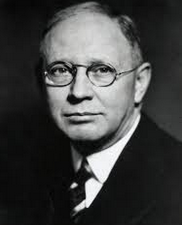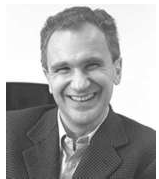Goal motivation changes as people move closer to their target, according to Stanford’s Szu-chi Huang and Ying Zhang of University of Texas.
Their work built on Heinz Heckhausen’s earlier studies of goal motivation.
In the first stages of effort, multiple paths toward the goal makes the target seem attainable, noted Huang and Zhang.
This perception of “self-efficacy,” belief in ability to achieve a goal, provides motivation to continue goal striving, reported Stanford’s Albert Bandura.
When people are close to achieving a goal, a single goal path provides greater motivation. This observation is consistent with Clark Hull’s finding that motivation increases closer to the goal.
A single route to the finish reduces the “cognitive load” of considering different approaches, supporting Sheena Iyengar and Mark Lepper’s finding that “more choice is not always better.”
These stages of goal pursuit are characterized by different mindsets.
“Deliberative Mindset” describes considering effort toward a goal whereas “Implemention Mindset” characterises planning actions toward a goal, according to NYU’s Peter Gollwitzer, Heinz Heckhausen, and Birgit Steller of University of Heidelberg.
Motivation toward a goal is also determined by:
- Goal value,
- Expectancy of success, based on probability, difficulty, sufficiency, necessity,
according to Tel Aviv University’s Nira Liberman and Jens Förster of Jacobs University of Bremen and Universiteit van Amsterdam.
Similarly, Huang and Zhang demonstrated the motivational impact of number of choices.
Volunteers with fewer choices were more likely to achieve the goal of a in a study of incentive to claim a free yoghurt.
“…relatively rigid structures can often simplify goal pursuit by removing the need to make choices, especially when people are already well into the process,” explained Huang.
A practical application is that nonprofit organizations can benefit from changing contribution options when a fund-raising target is nearly met.
At that time, fewer and simpler ways to donate are likely to result in more participation in the campaign.
-*How do you maintain motivation when you are close to achieving a goal?
RELATED POSTS:
- Still Fulfilling Your New Year’s Resolutions?
- Clearly-Imagined Future Self Enables More Effective Goal Planning
- Recasting Unattainable Goals into Refreshed Options
- Hacking Human Behavior with “Tiny Habits”
- How to Change Habits
- “Grit” Rivals IQ and EQ to Achieve Goals
- Working toward Goals with “Implementation Intentions”
- Minimize “Quest for the Best” Bias
- Decision Maximizers, Satisficers and Potential Bias
- Paradoxical Bias against Innovative Ideas in the Workplace
- Reframing Non-Comparable Choices to Make Them Simpler, More Satisfying
©Kathryn Welds









































